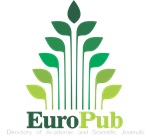Pemetaan Dan Pengukuran Pemanfaatan TIK Menggunakan Metode Echosystem (Studi Kasus STT-Payakumbuh)
DOI:
https://doi.org/10.22373/ekw.v2i1.2519Keywords:
TIK, Echosystem, Unesco, ITU, TesCaAbstract
The rapid growth of ICT (Information and CommunicationTechnology), which changed the whole aspect of human life, such as the way people think, behave, communicate, work and support themselves. This change had a positive impact on the improvement of the efficiency of information and communication needs. So that the use of IT in all areas of life provides a significant advantage. Utilization of Information and Communication Technology (ICT) in the institution of Higher Education requires planning and management are mature, both in infrastructure, human resources and in terms of users, so that the use of ICT / ICT not only to improve the effectiveness, efficiency and productivity, but also can improve competitiveness (competitive adventages) in the era of globalization ini.Metode used in this study is a Echosystem consisting of three (3) stages of development that the ICT development by UNSECO, iT development, and the development model Zen Framework Smart Campus (TeSCA). It is hoped this method can be a strategic step in the utilization of and basis for the advancement of the ICT development of STT-Payakumbuh campus in the futureDownloads
Published
Issue
Section
License
Proposed Policy for Journals That Offer Open Access Authors who publish with the Elkawnie journal agree to the following terms:
a. Authors retain copyright and grant the journal right of first publication with the work simultaneously licensed under a Creative Commons Attribution License that allows others to share the work with an acknowledgement of the work's authorship and initial publication in this journal.
b. Authors are able to enter into separate, additional contractual arrangements for the non-exclusive distribution of the journal's published version of the work (e.g., post it to an institutional repository or publish it in a book), with an acknowledgement of its initial publication in this journal.
c. Authors are permitted and encouraged to post their work online (e.g., in institutional repositories or on their website) prior to and during the submission process, as it can lead to productive exchanges, as well as earlier and greater citation of published work (see The Effect of Open Access).

























